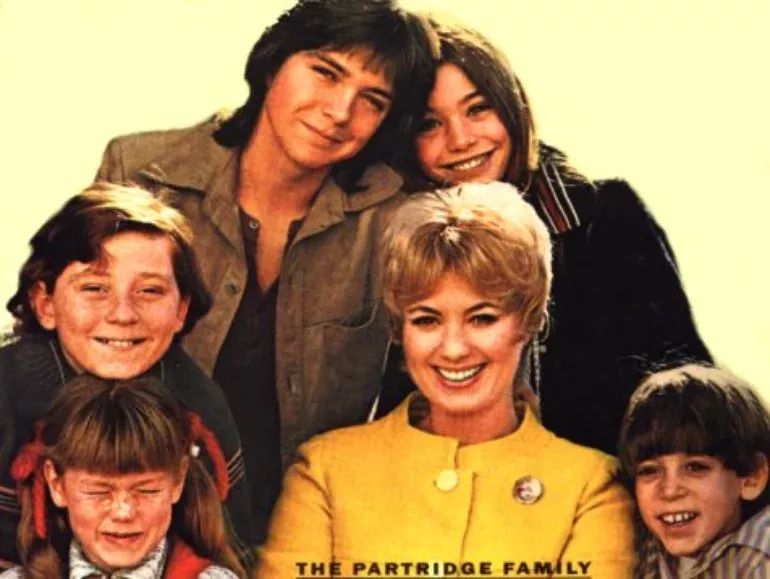
A tender plea with a blush of doubt—young love trying to sound brave between the beats.
Let’s set the key facts right up front. “Doesn’t Somebody Want to Be Wanted” arrived in February 1971 as the follow-up to “I Think I Love You,” written by Mike Appel, Jim Cretecos, and Wes Farrell, produced by Farrell, and released on Bell Records. It’s a compact 2:49 and appeared on The Partridge Family’s second LP, Up to Date, with “You Are Always on My Mind” on the B-side. On release, it reached No. 6 on the Billboard Hot 100, No. 6 on Billboard Adult Contemporary, hit No. 1 in Canada (RPM), and registered internationally (Top 10 in France and Australia). The single earned RIAA Gold certification in March 1971.
Behind those numbers is a little bit of drama. David Cassidy—the group’s unmistakable lead voice—famously hated the idea of the spoken interlude and initially refused to record it, worried that it would cheapen the performance (and his image). The standoff grew so serious that label and studio executives intervened; production on the TV series even paused while his team urged him to relent. Cassidy finally cut the track—spoken bridge and all—but later said he still couldn’t stand to hear it. However reluctant the singer, the record worked: it connected with exactly the audience it addressed, and quickly.
Placed at the heart of Up to Date, the song says in plain, youthful language what many of us took years to admit: wanting to be chosen is its own kind of courage. That’s the real subject here—not swagger, not conquest, but the small brave act of asking. You can hear the architecture of that feeling in the writing. Appel and Cretecos’s verses move with a tentative step—questions, soft edges, the kind of phrasing that sounds like you’re trying not to spook the moment—while Wes Farrell’s chorus opens into a tuneful plea that lands like a half-smile: maybe if I sing it, you’ll understand. The much-debated spoken middle is the diary page slipped into a pop single: direct, a touch self-conscious, and—for the teenagers who first heard it in 1971—disarmingly intimate. (Even if Cassidy bristled, millions of listeners felt seen.)
If you came of age with these records, you’ll recognize the production’s gentle sleight of hand. The arrangement is pure early-’70s Los Angeles craft: light rhythm section, chiming guitars, backing vocals that lift rather than crowd, and a mix scaled for living rooms as much as for car radios. The Partridge Family discs often get labeled “bubblegum,” but the workmanship is sturdier than that word suggests—the kind that lets a simple melody carry real feeling without collapsing under it. That’s why older ears still warm to this track. It doesn’t shout; it sits beside you and asks—the beating heart of pop, really.
Chart talk tells a subtler story, too. After the runaway No. 1 of “I Think I Love You,” this follow-up didn’t just ride momentum—it proved the act could live beyond a single lightning strike. A Top-10 U.S. hit and No. 1 in Canada, plus gold certification just weeks after release, meant the song was more than an episode souvenir; it was a standalone memory for anyone who’d ever needed to say, out loud, please pick me. It even topped Cash Box’s list at one point, a reminder of how strongly it scanned across different trade barometers that spring.
And the meaning that lingers? For many of us—especially those who now read the title with a gentler, wiser gaze—“Doesn’t Somebody Want to Be Wanted” captures the first time we learned that vulnerability isn’t a flaw; it’s the price of entry. The lyric speaks in plain English, the melody keeps its promises, and Cassidy’s bright tenor—protesting though he may have been—carries that hopeful ache as only a young voice can. Decades later, the record still smells like pencil shavings and folded notes, bus windows fogged by talk you can’t quite finish before your stop. It remembers that wanting to be chosen is not small, and that saying it out loud is how another life begins.
If you revisit it tonight, notice how quickly the song sets the stakes: verses that circle the question, a chorus that chooses honesty, and a brief spoken admission that could have been a gimmick but somehow plays like confession. That mix—craft + candor—is why the track keeps finding listeners long after TV seasons and lunchbox decals have faded. It isn’t only a souvenir of 1971; it’s a postcard from the first time you let your guard down and waited, heartbeat in your ears, for the answer.